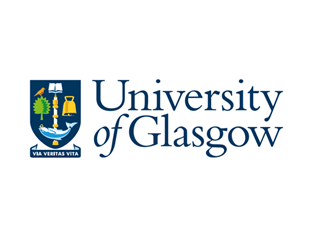A new study has shown that AI analytical tools developed by the University of Glasgow are just as effective in detecting heart failure as human experts, but are even faster, opening up potential to reduce clinical times and speed up diagnosis.
Presented at the European Society of Cardiology (ESC) Conference in Amsterdam, the findings come from the OPERA study, a collaboration between the University of Glasgow, AstraZeneca, NHS Greater Glasgow & Clyde, and NHS Golden Jubilee to assess the effectiveness of AI technology in patients with heart failure.
The results show that AI interpreted heart ultrasound images, including those taken with a handheld device, are as effective as using a typical ultrasound machine operated by an expert in measuring the pumping action of the heart.
Standard analysis times, however, take around 30 minutes with a human operator. The new AI tool takes just a minute to interpret the echocardiogram image – the image of the heart produced by the ultrasound. This is a dramatic reduction in clinical time, which could significantly speed up heart failure diagnosis waiting times, potentially saving lives.
Heart failure is a serious condition resulting from the heart being unable to pump blood around the body effectively. The condition can be debilitating, with a range of symptoms impacting a person’s day-to-day life.
Over a million people in the UK are estimated to be living with heart failure – 48,000 people in Scotland have been diagnosed with the condition by the GP. Experts believe, however, that thousands more are living with the condition unknown.
Early diagnosis is key, as starting treatment early can reduce the risk of hospitalisation for people with the condition and improve their overall quality of life.
The latest results from OPERA show that using AI to interpret echocardiogram images could allow for early diagnosis, and that faster analysis of scans could also help the NHS reduce waiting times and help to alleviate pressures on the healthcare system.
The OPERA study findings are the first outcome from the Memorandum of Understanding between the University of Glasgow, NHS Golden Jubilee, NHS Greater Glasgow & Clyde, AstraZeneca UK and Lenus Health. Formed in 2022, the partnership of academia, healthcare and industry work collaboratively together to deliver NHS transformation by testing new digital technologies and patient pathways, to enable earlier diagnosis and treatment.
“Our breaking new OPERA results show that investing in AI in healthcare could offer remarkable benefits to both patients and the NHS,” said Dr Ross Campbell, from the University of Glasgow, who presented the OPERA findings at the ESC Conference.
“We have shown that AI can interpret echocardiogram images accurately, and given AI can produce a report in a fraction of the time, this could really make a difference in allowing us to make early diagnosis of heart failure possible.
“OPERA has been made possible by the collaboration between the University of Glasgow, AstraZeneca, Lenus Health and the NHS, who have helped us demonstrate how heart failure diagnosis could be improved for patients around the world.”
Dr Ed Piper, Medical and Scientific Affairs Director, AstraZeneca UK, added: ‘”The results of the OPERA study show how innovative technology, including AI, has the potential to streamline the diagnosis of heart failure so that patients receive the care they need at the earliest opportunity to improve their outcomes.
“AstraZeneca is proud to have collaborated with our partners in Glasgow under the Memorandum of Understanding to deliver these exciting data that will help transform future clinical practice in heart failure diagnosis.”
The University of Glasgow is testing the strategy of the OPERA study through the University of Glasgow-led global SYMPHONY study (Screening for earlY heart failure diagnosis and Management in Primary care or at HOme using Natriuretic peptides and echocardiographY), which involves testing whether AI reporting can detect heart failure and lead to earlier diagnosis and life-saving treatment. The study is made possible by a collaboration with AstraZeneca and is taking place in Scotland, Denmark, Sweden, Canada and the USA.
Source: DIGIT

